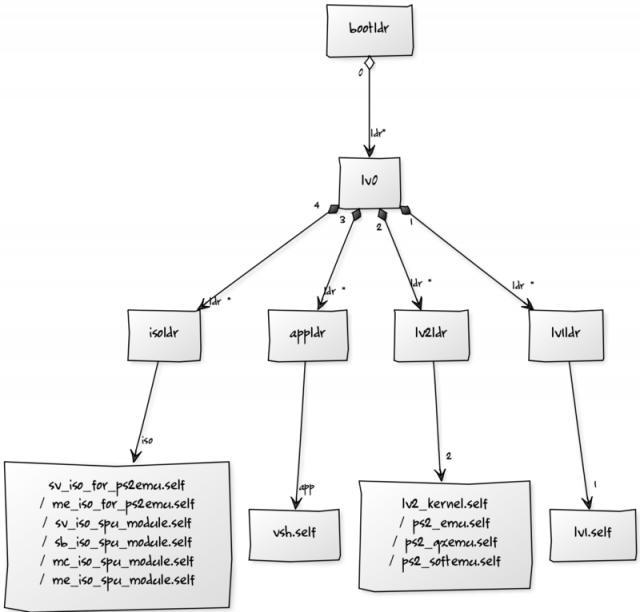
Sony faced a setback in its campaign to control what software can run on its PlayStation 3 after hackers published one of the cryptographic keys that forms the core of the security scheme locking down the game console.
The so-called LV0 key, released by a crew calling itself "The Three Musketeers," grants access to the one of the most sensitive parts of the PS3. Its availability should make it easier for hackers and modders to work around restrictions Sony places on the console. The key can be used to decrypt future security updates Sony issues for the console and to incorporate those changes into custom firmware packages not authorized by the Japanese company. Sony has long discouraged the use of custom firmware by, among other things, blocking consoles that use them from connecting to the PlayStation Network.
The Three Musketeers said they discovered the LV0 key some time ago and only published it after a separate hacking group was using the code to build and sell its own custom firmware called BlueDiskCFW. Their post appears to be available here.
"You can be sure that if it wouldn’t have been for this leak, this key would never have seen the light of day," the group wrote in a note accompanying the key, according to a post published on Tuesday to PlayStationLifeStyle.net. "Only the fear of our work being used by others to make money out of it has forced us to release this now."
Release of the key is only the latest attack on a security regimen that many PS3 users took as an affront to their self-proclaimed what they argued is their right to use the console as they saw fit. Early efforts to seize control from Sony included PSJailbreak, which was a USB stick that allowed games to be fully installed to, and played from, the system's included hard drive. In late 2010, a group calling itself fail0verflow described ways work through the PS3's various security levels, which include a chain of trust, a hypervisor, and signed executables. The group ultimately located the ECDSA signature, a private cryptographic key the console uses to authorize high-level operations.
Working independently of the group, hacker George Hotz soon matched the fail0verflow feat by discovering and publicly releasing the metldr keys that could be used to trick the system into running unauthorized programs. Sony sued the New Jersey-based Hotz over the disclosure, but eventually agreed to drop the controversial lawsuit in exchange for promises he would curtail all future attempts to unlock the game console.
It remains unclear just how damaging the key's release will be to Sony's attempts to stop the running of pirated games and other types of unauthorized software on the PS3. Nate Lawson, a cryptographer and the principal of the Root Labs security consultancy, said the disclosure represents a setback for Sony in its attempt to control what end users can and can't do with the console.
"They're going to have to depend on obfuscation as their primary security measure to keep people from decrypting their updates," he told Ars. "It's a cat-and-mouse game that's now more closely in the favor of the attackers. But Sony has plenty of things they can still do. It's just another link in the chain."
Story updated to change the name of the group that leaked the key.
Listing image by PlayStation.com
reader comments
128